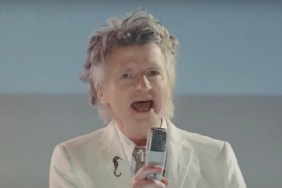If you haven’t noticed, COVID-19 has essentially stalled the live music industry. And it’s looking like we might not get to experience the same live shows we’re used to, until a vaccine is available.
While socially distanced gigs aren’t so bad. A seat? At a show? Revolutionary. Artists and venues alike need to be able to get more punters to a show to pay rent and all those nice things.
German scientists are trying to find a solution. They’re throwing a concert to experiment with and test how COVID-19 spreads. More so, they’re actually trying to find out if there’s a middle ground between the social distancing rules we’re implementing now and the way things used to be.
So, how does it work? The project, titled Restart-19, is scheduled to begin 22nd August at Leipzig Concert Hall, a large seated venue, which has hosted artists like Britney Spears and Bob Dylan previously.
The scientists are gathering up 4,200 volunteers (of which they so far have over 1,000) to attend a live concert by German artist, Tim Bendzko. Obviously, volunteers require a negative COVID-19 test result, will need to be between 18 and 50-years-old and have a bunch of medical-related questions to answer. Registrations are taken here.
Once volunteers attend the show, they’ll be tested for the virus again. They’ll then re-enter the venue wearing a mask. Each volunteer will wear devices that, “transmit data every five seconds, including proximity to other devices and location within the venue.”
Scientists will also be using fluorescent disinfectant to show them which surfaces have been touched and have become dangerous. Meanwhile, they’ll be using a fog machine in the room to experiment with the possibility of spread happening through aerosols.
The project is expected to cost €990,000. Funded by the German state’s Saxony and Saxony-Anhalt and the Martin Luther University of Halle-Wittenberg, they’re hoping to emerge on the other side of September with a framework for how live music, entertainment, and sports events can go ahead without posing danger.
Stefan Moritz, the Head of Clinical Infectious Diseases at the University hospital in Halle, told the Guardian, “We are trying to find out if there could be a middle way between the old and the new normal that would allow organisers to fit enough people into a concert venue to not make a loss.”












